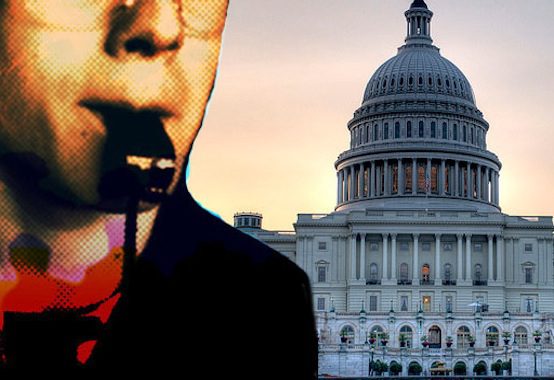Whistle While You Work, Congress

Perhaps the signing yesterday of the Whistleblower Protection Enhancement Act (WPEA) is a sign of good things to come for our quarreling Congress. Or, if not, perhaps we should let them know we expect it to be.
The bill, which took 13 years to obtain unanimous consent in both the House and the Senate and encountered its share of thwarting from members of both parties along the way, expands protections of federal workers’ right to report government corruption and wrongdoing safely. Congress last revised the Whistleblower Protection Act in 1994. You may remember hearing of federal air marshal Robert McClean, who, in 2003, leaked an unclassified, TSA-internal directive outlining cuts in marshal coverage for long-distance passenger flights during a terrorist alert and subsequently lost his job, and his petition for review. The Court of Appeals for the Federal Circuit, the only court empowered to hear appeals of whistleblower cases decided by the Merit Systems Directive Board (which adjudicates whistleblower complaints), has ruled for whistleblowers in only three of 203 cases in the roughly ten years that followed.
The WPEA initiative has been led by the Government Accountability Project (GAP), a non-profit that attests to the peeks and troughs the legislation traveled as it struggled to maintain its coalition of hundreds of groups demanding upgrades in protections. Besides closing loopholes in the courts process, like the one that said an employee was protected only if he/she was the first to report misconduct, there are also key expansions provided by the bill.
After 13 years of teeth pulling, transparency seems like something we can all agree on. There’s no reverting the process – say what you will about technology, but one undeniable benefit of its omnipresence is the accelerated rate with which it is demanding accountability from both governments and business. Although it approaches a different scale, one wonders what S. 743 can do for the Bradley Manning case, not to mention in motivating states to look at their own legal systems, and ask to what degree they encourage public sector employees to blow the whistle on wrongdoing and abuse. Stephen Kohn at the National Whistleblowers Center notes that the new provisions still dim in comparison to the basic rights whistleblowers enjoy in the private sector. However, surveys like this one conducted by the first law firm to advocate for whistleblowers who report possible violations of the federal securities laws, indicate that 54 percent of Americans have knowledge of corporate misconduct and nearly one in four still fear retaliation in reporting it.
Dana Liebelson has more on President Obama’s about-face on the issue.
Comments